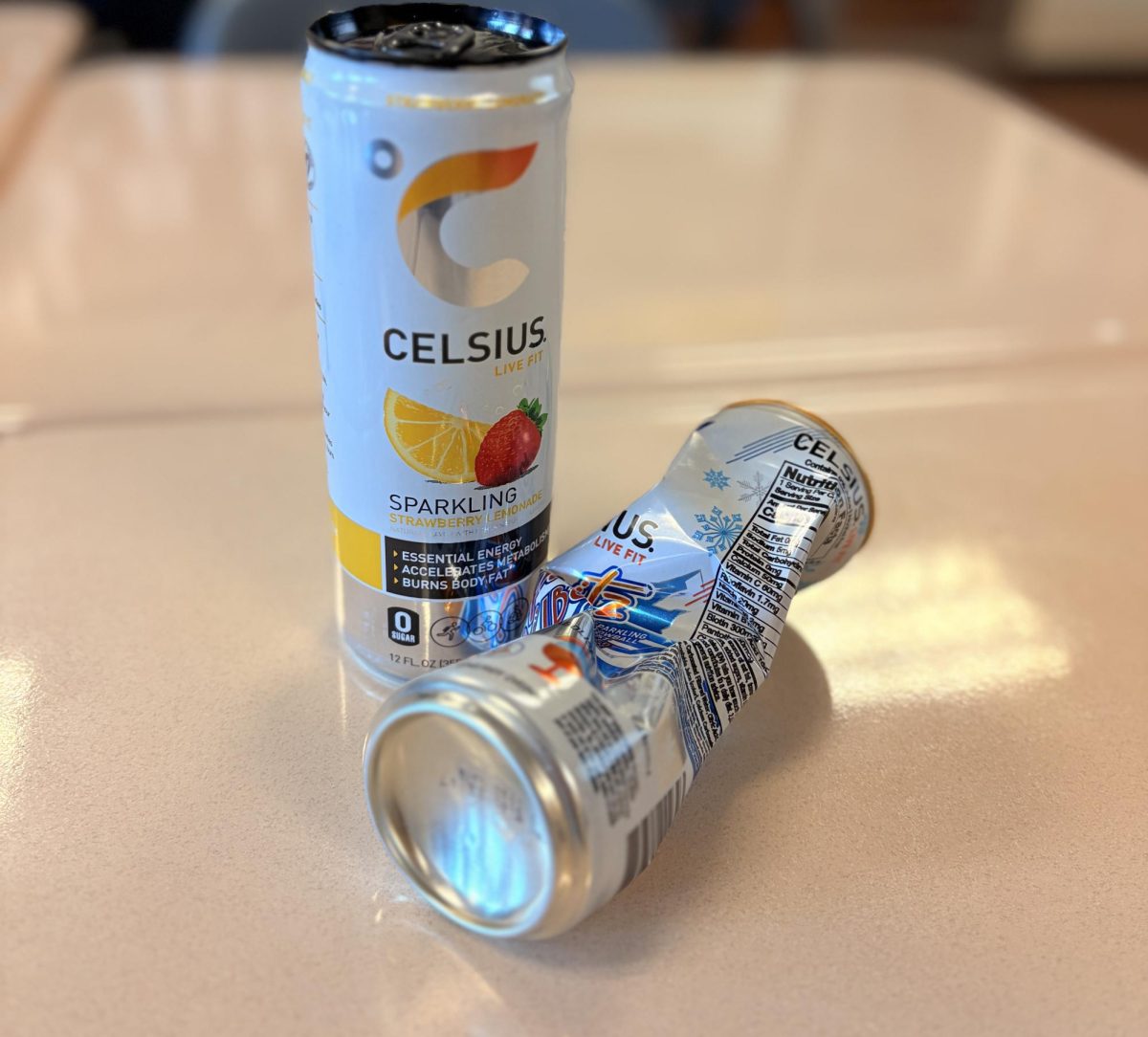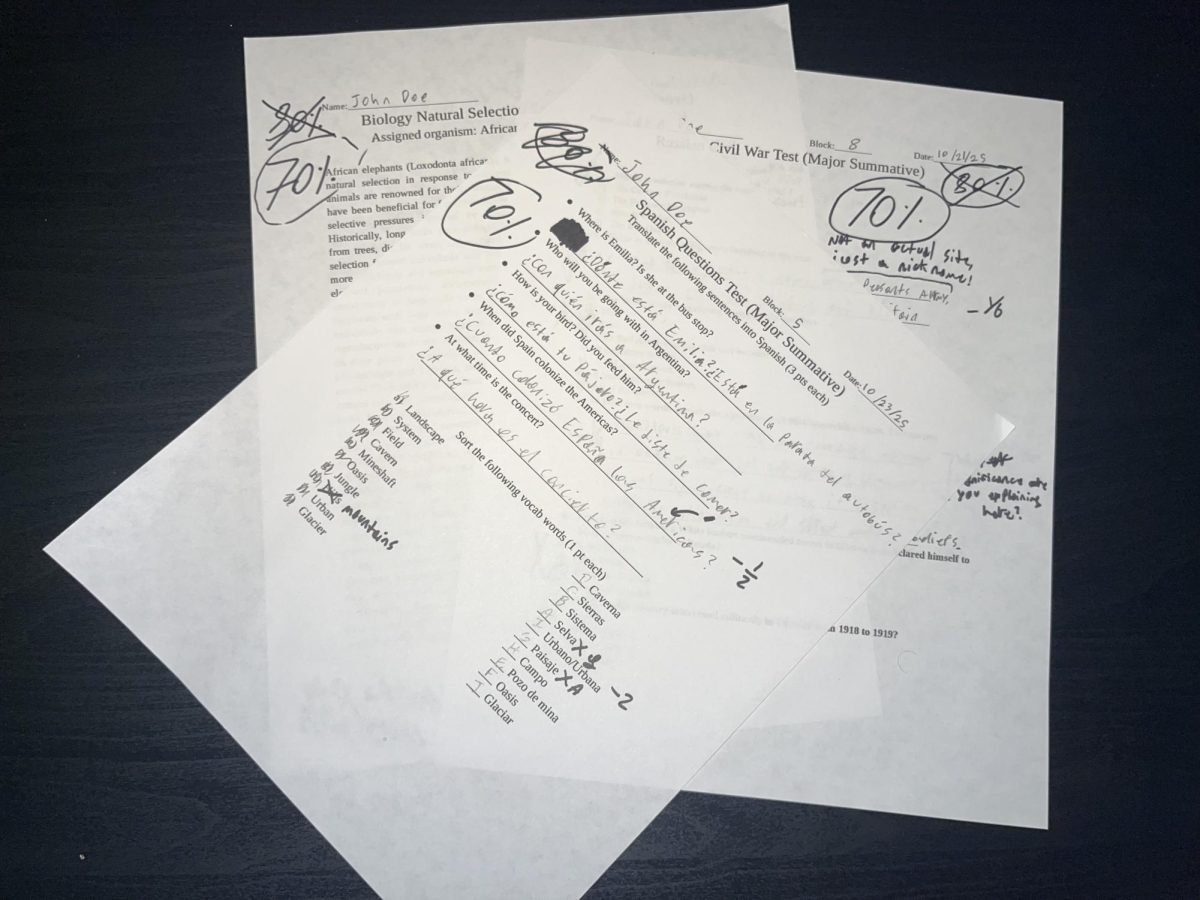During the week of Oct. 6th, Rock Ridge students were quick to notice the absence of a drink that, to many, has become a part of their daily routine: Celsius. The widely popular energy drink quickly disappeared from the school’s vending machines. In its place stood Poppi, a probiotic soda, leaving many students wondering: What happened to Celsius?
The answer, according to Principal John Duellman, lies in federal nutritional regulations. “A student brought it to my attention that there was something in the vending machines that may not have met the federal standard,” Duellman said. “I asked Pepsi to go through the vending machines and remove anything that did not meet them.”
The vending machine in question is not operated by the school but by PepsiCo, which partners with schools to stock and maintain products. According to Duellman, once Pepsi was contacted, they conducted a review and removed Celsius for noncompliance with federal health guidelines, though the company did not specify which of the guidelines was violated.
With this removal, Rock Ridge was no longer a part of the 11.6% of secondary schools that sell energy drinks in their stores or vending machines.
For some students, however, the removal of Celsius means more than losing a flavorful drink. It means losing a perceived source of energy and focus during the school days. “[Celsius helps] me focus on tests and gives me a clear mindset so that I may focus better in classes,” sophomore Richa Galagali said. “It [also] was more accessible in the vending machines.”
Others expressed frustration towards the lack of communication about the change. “If the school made this decision, I feel like they should’ve told us why,” sophomore Sudhiksha Gudimettala said. “It just disappeared one day.”
Still, the debate over caffeine and energy drink safety, especially among teens, is far from simple. Athletic trainer Cole Powell supports the decision to remove Celsius, citing health and safety concerns for student athletes. “Somebody might be okay with one, but it’s like a dose of medicine,” Powell said. “And so if they’re drinking a Celsius that has 200 mg of caffeine, and they have one in the morning because they were tired studying, and then they have one at lunch because they’re trying to stay awake for class, and then they have one at night, within a 16-hour period, they’ve had 600 mg of caffeine. And that’s just a very large amount.”
In fact, freshman Jishnav Raghupathi drinks two to three cans of Celsius a day and Galagali claims she drinks seven cans a week, both consuming significantly above the American Academy of Child and Adolescent Psychiatry (AACAP)’s recommended amount of caffeine–100 mg– for one student.
According to Powell, overconsumption of such energy drinks increases the risk of adverse effects. “There’s an increased association between [energy drinks] and things like ADHD or other conduct disorders,” Powell said. “And so, just combining that with the school and an at-risk population, it’s probably just not a good mix.”
Powell’s concerns about the adverse effects of significant caffeine consumption are also echoed by health professionals. According to Johns Hopkins University, the AACAP recommends teenagers drink “less than a 100 mg of caffeine per day if they’re not avoiding it entirely.” Celsius contains 200 mg of caffeine per serving, surpassing this recommendation by 100%.
While studies focusing on Celsius solely are scant, federal resources have conducted studies on caffeinated drinks as a whole. Specifically, the Centers for Disease Control and Prevention (CDC) states that 1,499 children, ranging from 12 to 17 years old, were in the emergency room for energy drink-related emergencies in 2011. In July of 2024, about 30-50 percent of adolescents reported drinking energy drinks, which could explain why the U.S. is the number one market for energy drinks, and how energy drink companies achieved $193 billion in sales in 2023.
For now, energy drinks such as Alani and Bloom are still being sold in the school, but this could change in the upcoming years, as health guidelines change and more studies are done. “[Students] work on theater programs, they’re in athletics, they’re on all kinds of things,” Duellman said.“There are much healthier alternatives that will keep them [awake] longer. If Celsius did not fall within that guideline, which it did not, it’s gone.”
























![The Phoenix varsity volleyball team lines up for the national anthem. “We were more communicative [with each other] during this game, and I feel like we kept our energy up, especially after the first set,” senior Jessica Valdov said.](https://theblazerrhs.com/wp-content/uploads/2024/10/DSC_0202-1200x800.jpg)










![Junior Alex Alkhal pitches the ball. “[I] just let it go and keep practicing so we can focus on our goal for the next game to get better as a team,” Alkhal said.](https://theblazerrhs.com/wp-content/uploads/2025/05/DSC_0013-1-1200x929.jpg)
























